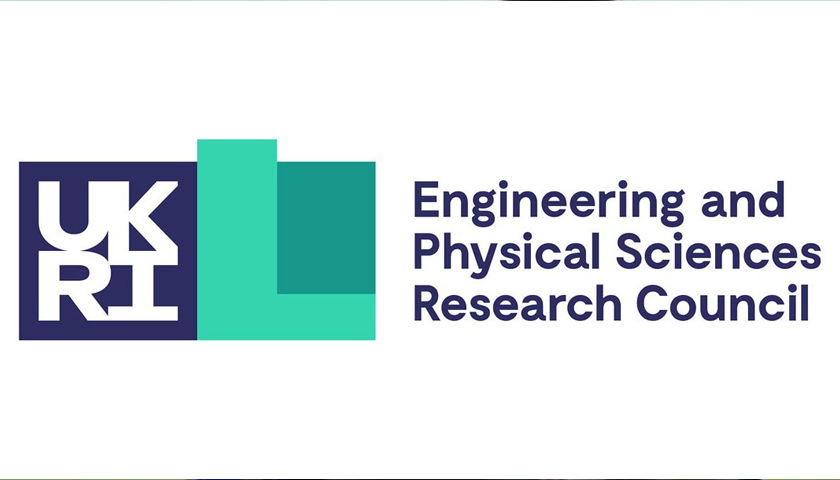The new Prosperity Partnerships will tackle key industry challenges in areas from drug manufacturing and artificial intelligence (AI) to cybersecurity.
The Engineering and Physical Sciences Research Council (EPSRC) is funding 23 partnerships with a £41 million investment, matched with a further £56 million from businesses and academia.
The projects will deliver pioneering technologies that will improve lives and grow the economy, including:
- advancing drug development and manufacturing so that life-saving medicines can reach patients sooner
- using AI to assist examiners when they mark GCSE and A-level exams
- protecting national transport, manufacturing and energy infrastructure from future cyber attacks
- developing longer lasting batteries to transform the electrification of cars, aircraft and ships
Working with industry partners
Each partnership is co-created and co-delivered with UK business partners to ensure the research addresses industry needs.
They range from big household names to small and medium-sized enterprises, including:
- AstraZeneca
- Bupa
- GSK
- Pulpex Ltd
- Quantum Motion Technologies
- Rolls-Royce
- Synthomer
- Tata Steel
Turning science into practical solutions
Lord Vallance, UK Minister for Science, Innovation and Technology, said:
These partnerships show the range of real-world challenges the UK’s world-class research base is helping to tackle, from cutting carbon emissions in heavy transport, to improving access to life-saving medicines.
By backing scientists to work hand-in-hand with industry, we’re combining cutting-edge research with business expertise to turn science into practical solutions that can make a difference in people’s daily lives.
Making a real difference to people’s lives
EPSRC Executive Chair, Professor Charlotte Deane, said:
Our flagship Prosperity Partnerships scheme brings together world-class expertise from businesses and academia to solve big challenges to support the growth of industry and advance UK research.
These 23 ambitious projects present a significant investment in the UK’s future.
From speeding up drug manufacturing to longer lasting batteries, these partnerships have the potential to make a real difference to people’s lives and help boost the economy.
Transforming future medicines
Several projects will focus on making drug manufacturing faster, cheaper and more sustainable.
Two separate projects are partnering with AstraZeneca, the first being conducted at the University of Bristol.
This project aims to replace palladium, a rare, polluting metal used in drug manufacturing, with earth-abundant metals like iron and nickel to reduce carbon emissions.
Exploring medical advancements
The second with University College London (UCL) will drive a new era of AI-powered research and development to improve the development and manufacturing of next-generation biological therapies for:
- cancer
- obesity
- autoimmune conditions
Another UCL project is partnering with Lonza to make advanced, life-saving protein medicines more widely available.
While the University of Strathclyde will partner with GSK to design and test new classes of molecules that can tune and even reprogramme biological systems.
Addressing different challenges
Among the other projects, a partnership between King’s College London and exam board AQA will develop a safe AI virtual assistant.
This project aims to assist examiners when they mark GCSE and A-level exams, seeking to ensure that students receive the fairest exam results.
Energy and environment efficient
Swansea University will strengthen cybersecurity in critical national transport, manufacturing and energy infrastructure, aiming to protect against future cyber threats and prevent economic losses.
Meanwhile, the University of Nottingham will develop next-generation lithium-sulfur batteries designed to endure hundreds of charging cycles without losing energy.
This can potentially transform electrification of transport and help achieve net zero targets.
A flagship scheme
Since 2017, when the initiative was launched, 100 Prosperity Partnerships have received a total share of more than £600 million from EPSRC, industry partners and research organisations.
Such partnerships have paved the way for new and exciting discoveries and innovations.
For example, the development of a fleet of zero emissions buses across the UK through a partnership between Wrightbus and Queen’s University Belfast.
Building on success
The scheme has also formed strong links between companies and universities, leading to further collaborations.
A new project announced today between The University of Edinburgh and Rolls-Royce will drive cleaner aviation, building on the success of a previous Prosperity Partnership, ASiMoV.
The new project takes ASiMoV’s research to build the world’s first complete gas turbine simulation one step further with both physical and computational modelling.
